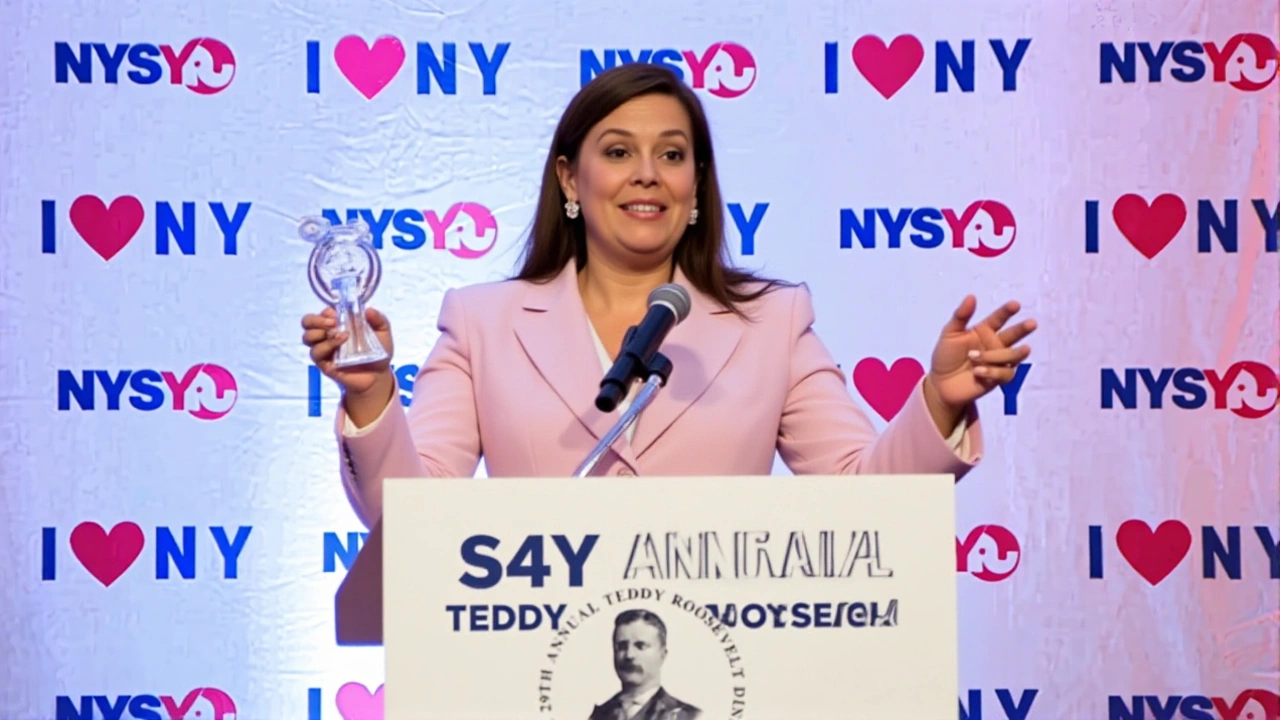 Oct, 16 2025
Oct, 16 2025
When Peter Giunta, former chair of the New York State Young Republicans and chief of staff to Mike Reilly was linked to a flood of hateful Telegram messages, the Young Republican National Federation demanded that every involved leader step down immediately. The scandal erupted on October 15, 2025, after Politico released more than 28,000 messages that glorified Adolf Hitler, mocked minorities, and even fantasized about rape and suicide. The fallout hit state chapters from New York to Kansas, putting the GOP’s bid for diverse voters in the 2025 midterms on shaky ground.
Background of the Young Republican National Federation
Founded in 1916, the Young Republican National Federation (YRNF) serves as the official youth arm of the Republican Party, boasting roughly 200,000 members in all 50 states. Its charter demands members adhere to a “code of conduct” that emphasizes respect, integrity, and professionalism. Yet the leaked Telegram chat, which ran from March to September 2025, exposed a stark contrast between the federation’s stated values and reality on the ground.
The Politico Investigation and Leaked Chats
Journalists Jason Beeferman and Emily Ngo sifted through the logs after an anonymous source handed them the data. Their analysis uncovered:
- Explicit praise for Adolf Hitler – e.g., “I love Hitler.”
- Racist slurs targeting Black people, Jews, and Asian immigrants.
- Sexist jokes about women, including a comment that “everyone that votes no is going to the gas chamber.”
- Violent fantasies, such as “rape political enemies” and “drive them to suicide.”
- Derogatory remarks about an “obese Indian woman” that spiraled into a hateful exchange.
These messages spanned state chapters in Arizona, New York, Kansas, and Vermont, with at least 12 participants identified as holding leadership roles.
Immediate Reactions and Resignations
At 10:58 AM UTC on the day the story broke, the YRNF posted on X, “We are appalled by the vile and inexcusable language revealed in the report… Those involved must immediately resign from all positions within their state and local Young Republican organizations.” The call to resign was swift and unapologetic.
Within hours:
- Mike Reilly, New York State Assemblymember for Staten Island’s 62nd District, terminated Giunta’s employment as chief of staff.
- Phil Scott, Governor of Vermont, publicly demanded the resignation of State Senator Samuel Douglass.
- The Kansas Republican Party announced the disbanding of the Kansas Young Republicans chapter, citing “irreconcilable conduct” from its members.
Giunta, in a written statement to Politico, said, “I am so sorry to those offended… I take complete responsibility, though I cannot verify every line.” He also hinted that the logs might have been “deceptively doctored.”

Political Fallout and Party Responses
Both Republican and Democratic leaders condemned the messages. Senate Minority Leader Katherine Clark (D‑MA) called the chats “a toxic echo of extremist ideology.” Meanwhile, GOP Senate Majority Whip Jim Risch (R‑ID) stressed that “the party will not tolerate hate, and swift action will follow.”
The scandal arrives at a pivotal moment: the 2025 midterm elections, where Republicans are courting swing voters in traditionally Democratic suburbs. Analysts from The Brookings Institution warn that the episode could “erode trust among younger, diverse constituencies the party is courting.”
State Republican committees across the nation have pledged internal reviews. In New York, the state party chair announced a “zero‑tolerance audit” of all youth affiliates. In Kansas, the party’s executive director said the disbanded chapter’s members would be barred from future leadership roles.
Implications for the 2025 Midterms
Polling conducted by Pew Research Center shows that 62 % of voters under 35 consider “racial tolerance” a top issue when evaluating candidates. The YRNF’s scandal threatens to alienate exactly those voters.
Campaign strategists are already reshuffling messaging. In Arizona, the state GOP has shifted focus toward economic issues, hoping to distance the brand from the youth controversy. In Vermont, Governor Phil Scott’s call for Douglass’s resignation is being framed as a “leadership renewal” ahead of the crucial Senate races.
Legal experts say there could be liability concerns if any of the chat participants used the platform to plan actual violent actions. However, no law‑enforcement investigations have been announced as of October 20, 2025.

Key Facts
- Date of leak: October 15, 2025.
- Total messages reviewed: 28,000 + spanning seven months.
- Primary figures forced out: Peter Giunta, Samuel Douglass, plus unnamed Kansas chapter leaders.
- Organizations impacted: Young Republican National Federation, Kansas Republican Party, New York State Assembly office of Mike Reilly.
- Potential election impact: May depress Republican support among voters ages 18‑34.
Frequently Asked Questions
How does this scandal affect young voters in the 2025 midterms?
Polling shows that a majority of voters under 35 prioritize racial tolerance. The leaked chats, steeped in hate speech, risk alienating that demographic, potentially reducing Republican turnout and swing‑state margins where youth votes are decisive.
What actions have state Republican parties taken so far?
New York’s party chair ordered an internal audit of all youth chapters; Vermont’s governor publicly demanded Senator Samuel Douglass resign; Kansas disbanded its Young Republicans chapter and barred the implicated members from future leadership roles.
Could any participants face legal consequences?
So far, no criminal investigations have been launched. Legal experts note that unless the chats contain concrete plans for violence, the primary repercussions are likely internal party discipline rather than criminal charges.
What does the YRNF’s demand for resignations mean for its future?
The federation hopes the swift expulsions will restore credibility and signal a zero‑tolerance stance. However, critics argue that the damage to its brand may linger, especially if similar incidents re‑emerge during the campaign season.
Why did Politico obtain the Telegram logs?
An anonymous source sent the logs to Politico, prompting the outlet’s journalists to verify the authenticity and publish the findings. The source’s motive appears tied to exposing extremist behavior within youth political groups.
